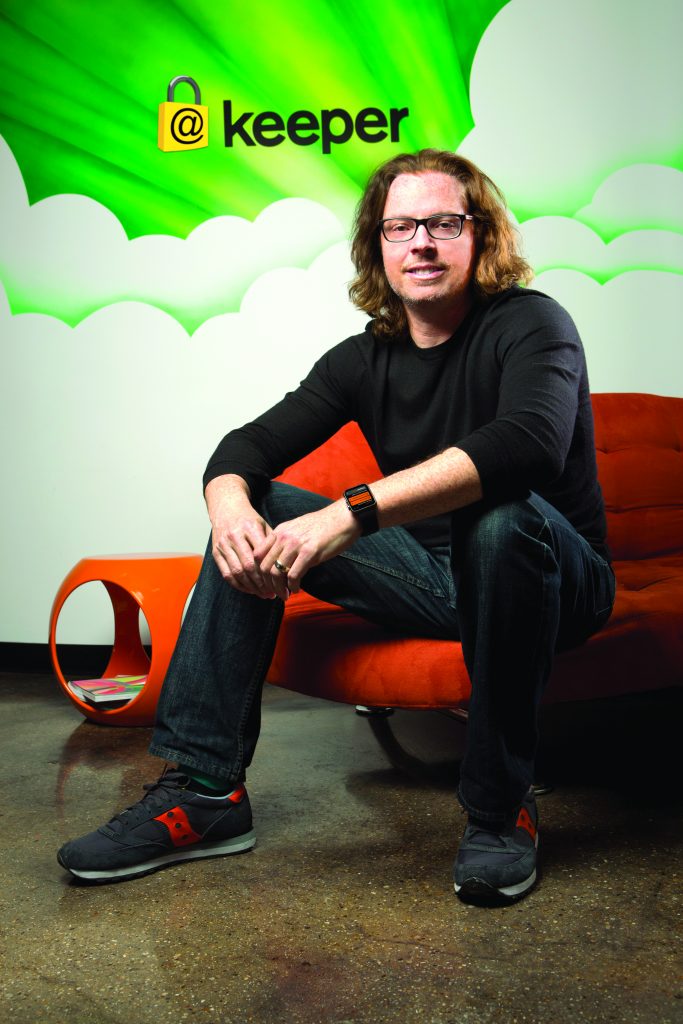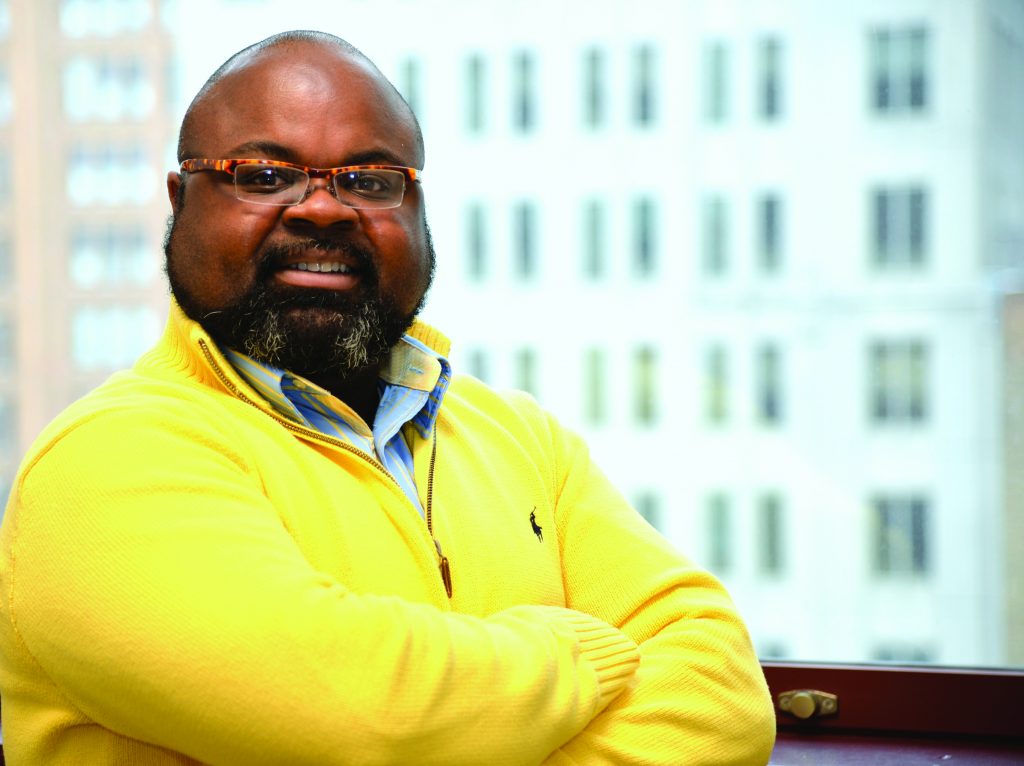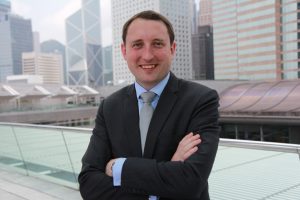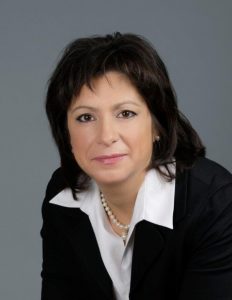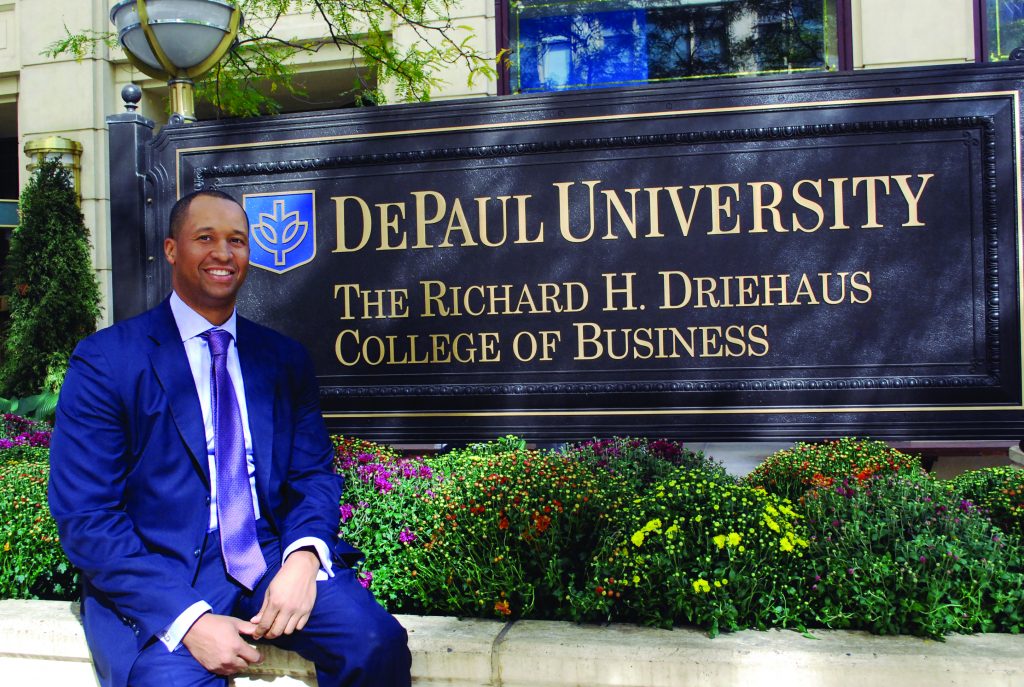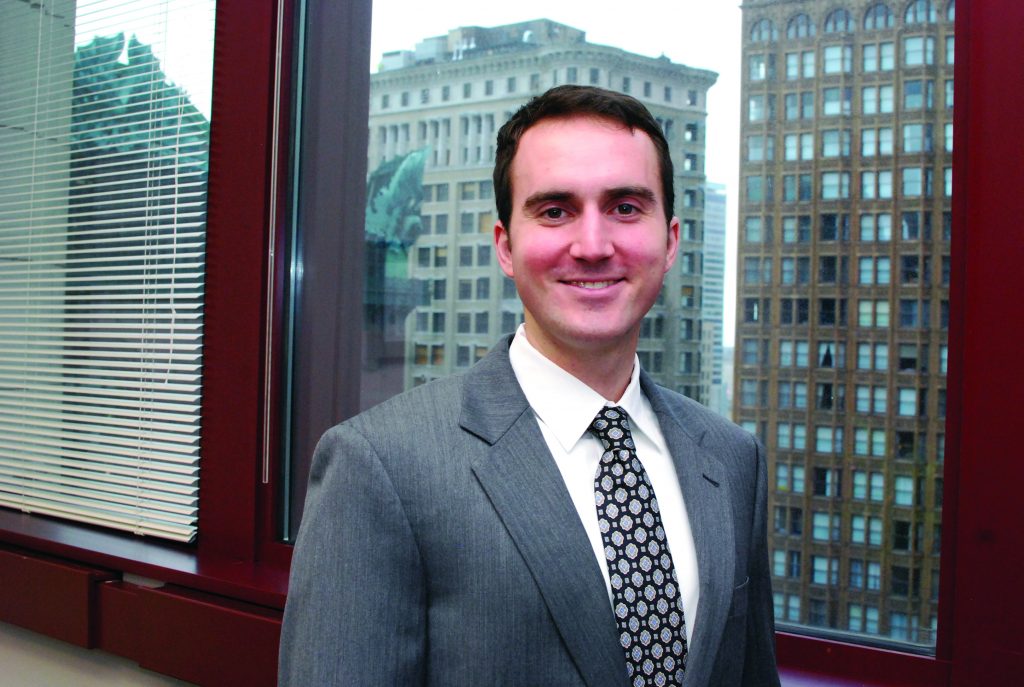Jared Smith and the Startup that Became a $600M Game-Changer
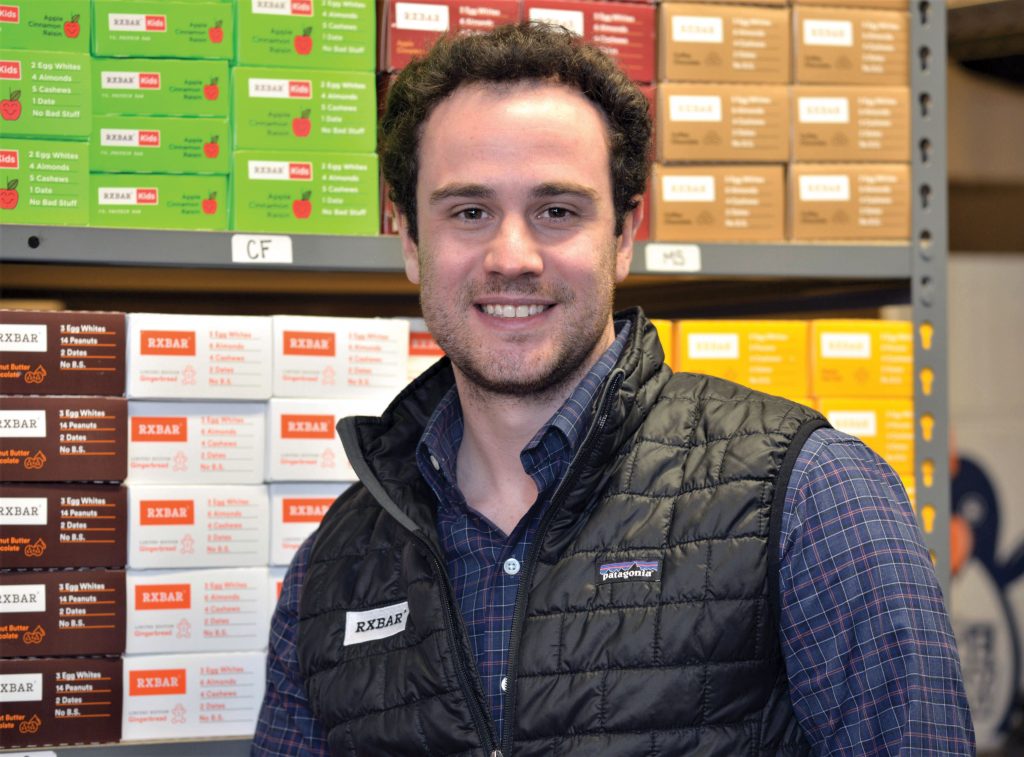
business partner’s parents’ home. Last fall Kellogg bought the venture for $600 million.
When Jared Smith (BUS ’08) began attending DePaul University, he thought he wanted to be a math teacher. His passion for business quickly led him to transfer to the Driehaus College of Business, where he double majored in economics and finance before graduating.
Now, Smith is co-founder of the nutrition bar company RXBAR, and he’s clearly mastered both math and business. Last October, Kellogg Co. acquired RXBAR for $600 million, calling the startup “a unique and innovative company” with “values, people and a cutting-edge approach (that) represent an exciting opportunity for our business.” Smith has stayed on with the company.
Headquartered in the River North neighborhood of Chicago, the company is the fastest-growing nutrition bar brand in the U.S. The acquisition is allowing RXBAR to expand its resources, break into new food categories and take advantage of Kellogg’s research and development resources while operating as a standalone business.
We don’t want to change the way we work, we don’t want to change the way we operate,” Smith says. “We wanted to be able to leverage their resources and their experiences where and when we need them.”
At DePaul, Smith took a range of classes, including an entrepreneurship class he says changed the way he thought about his career.
“What it really taught me was a different way of thinking and that there is more than one way to make a living, rather than going to work at a big financial firm,” he says.
Before he became an entrepreneur, however, Smith gained experience through a more traditional path in finance. He completed internships at three different financial services companies in Chicago, including an unpaid internship at what is now Morgan Stanley Wealth Management.
After graduating at the height of the financial recession, Smith took a job at Jackson National Asset Management, where he worked in various departments for the next four years. During his last year of working there as an operations analyst, he began collaborating with Peter Rahal—his childhood best friend—on creating a minimal-ingredient protein bar in the basement of Rahal’s parents’ house in Glen Ellyn, Ill.
Rahal, CEO of RXBAR, and Smith shared a passion for health and fitness. They would head to the gym together every day after work and were huge bar consumers themselves. They were unable to find an all-natural, clean, minimal-ingredient protein bar.
“If you look at the protein bar category, it’s either all fruit and nut all-natural or granola bars,” Smith says. “On the other side of the spectrum is body builder (bars) high (and) heavy in protein with tons of ingredients. There was nothing in the middle.”
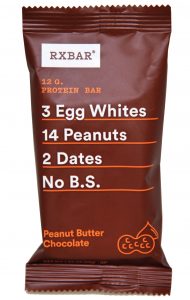 Smith and Rahal came up with the concept for RXBAR in August 2012, then spent the next eight months developing the recipe and designing the label themselves in PowerPoint— a label that, however ugly, successfully displayed their value proposition to offer whole food protein bars. In March 2013, Smith and Rahal quit their day jobs and officially launched RXBAR.
Smith and Rahal came up with the concept for RXBAR in August 2012, then spent the next eight months developing the recipe and designing the label themselves in PowerPoint— a label that, however ugly, successfully displayed their value proposition to offer whole food protein bars. In March 2013, Smith and Rahal quit their day jobs and officially launched RXBAR.
After going all in, they each invested $5,000 of their own money and rented a 1,000-square-foot manufacturing space on the West Side of Chicago. Over the next 18 months, their production and staff grew to the point where they eventually rented the entire 7,000-square-foot facility.
“Every single weekend, especially during the first couple of years in the business, we’d go out and sample our demo at any type of event we could find, whether it was a gym or a grocery store, literally anywhere,” says Smith. “We’d go out and sell the product directly to consumers to figure out what resonated and what didn’t, and eventually we’d start telling customers, ‘This is like eating a handful of nuts and some fruit and protein.’ This really hit home for our customers.”
This led Smith and Rahal to create RXBAR’s current packaging, which features its core ingredients on the front of the label.
In the first four years at RXBAR, Smith served as chief financial officer. His main focus now is building the company’s philanthropic arm and engaging a variety of stakeholders, including customers, suppliers and vendors.
Smith says he underestimated the work it would take to get to where he and RXBAR are today.
“Everything I read about entrepreneurship before starting the company was always focused on the outcome, the end game. That was something Peter and I never focused on,” he says. “Literally, we’d stay at work all week. Then we’d demo our samples on the weekends. We sacrificed a lot—social life, income, sleep and much more. We just focused on work, and that was it.”
As friends and co-founders, Rahal and Smith make up a perfect partnership. “Our personalities are totally different,” he says. “I’m much more methodical, pragmatic, back end, and he’s much more aggressive, front end, and an incredible visionary. But our relationship from first grade and growing up together proved to be extremely valuable, because who you partner with is everything. We trusted each other from day one.”
How Smith and Rahal work together has led to the business culture at RXBAR, as well as their product’s master claim, “No B.S.,” which is displayed proudly on the front label below the ingredients. “That’s what our product and business is all about, and that’s the definition of transparency,” Smith says. “We’re not trying to hide anything. We’re putting everything out there for the consumer and empowering the consumer to make that decision.”
By Jaclyn Lansbery | Photos by Kathy Hillegonds


